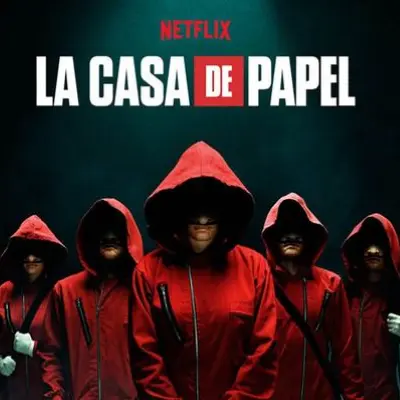Money Heist's impact on real-world protests will be its greatest legacy
-

"What’s unique and ultimately most inspiring about Money Heist is its revolutionary impact on real-world protests," says Molly Lipson. "In the series, citizens line the streets surrounding the Royal Mint and the Bank of Spain, chanting their support for the robbers and booing the state’s violent policing tactics. In real life, protesters in countries such as Lebanon, Iraq, France, and others have borrowed motifs from the show in their struggles for liberation, police abolition, anti-authoritarianism, and anti-capitalism. In the first season, I clapped my hands together in glee when I realized the robbers, who are all codenamed after cities, blagged their way inside the physical root of capitalism’s inequality. Of all places for a heist, the Royal Mint! I practically jumped off my couch when it became clear they were there to do more than just steal money — they were going to print it. Then, in season three, they decide to drop €140 million of it from an inflatable hovercraft over Madrid’s most crowded shopping street. The show’s main downfall is its omission of racial and gender analysis, both in the fictional world of Money Heist and in the casting. There is no mention of how race and class intersect, despite the whole plot revolving around anti-capitalism and anti-authoritarianism. This is no small exclusion; it is a fundamental flaw of the show. This also carries over to the casting: The character Nairobi is the only person of color in the entire show (the actor who plays her, Alba Flores, is of Romani heritage); and the character Manila, who is trans, is played by a cisgender actor. These pitfalls render the show a shamefully incomplete take on the issues it otherwise portrays so accurately and poignantly." ALSO: Úrsula Corberó recalls Money Heist fan Madonna approaching her at an airport.
TOPICS: La Casa de Papel, Netflix, Úrsula Corberó
More La Casa de Papel on Primetimer:- Money Heist creator sets a pandemic-inspired Netflix drama set inside a luxury underground bunker
- Money Heist's Ursula Corbero mourned her character's death for nearly a month
- TV Today: Money Heist, Pen15, and a Mariah Carey Holiday Special Headline Weekend TV
- Ten Shows and Movies to Watch on Netflix in December 2021
